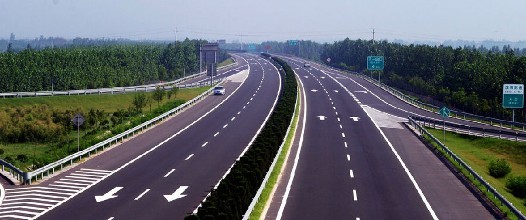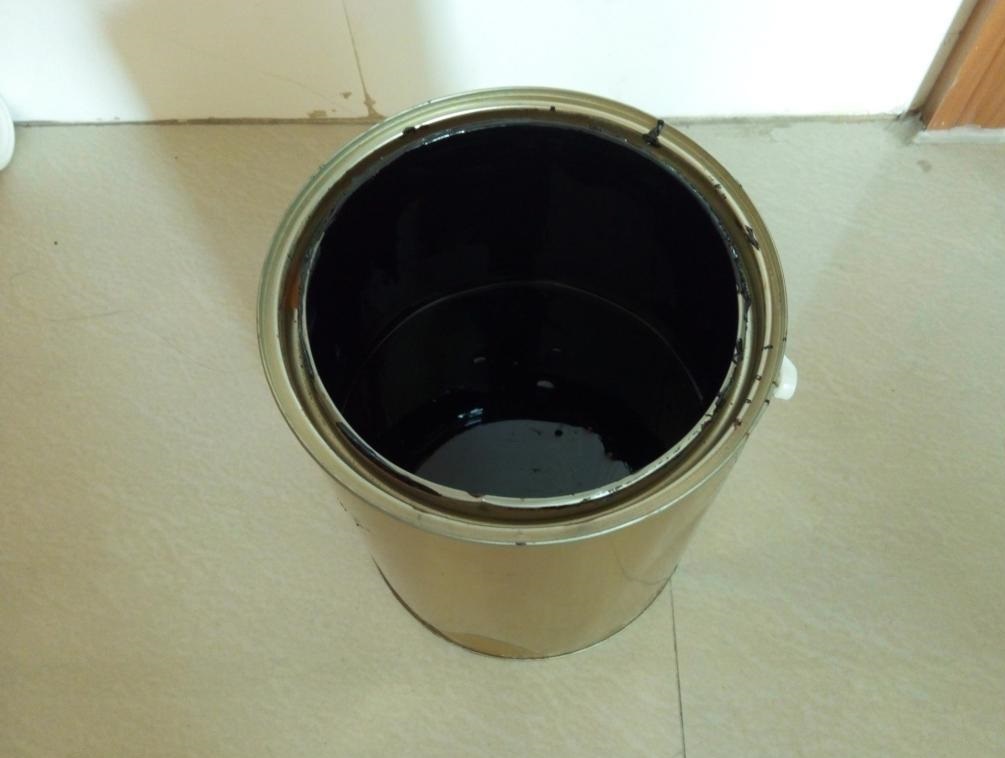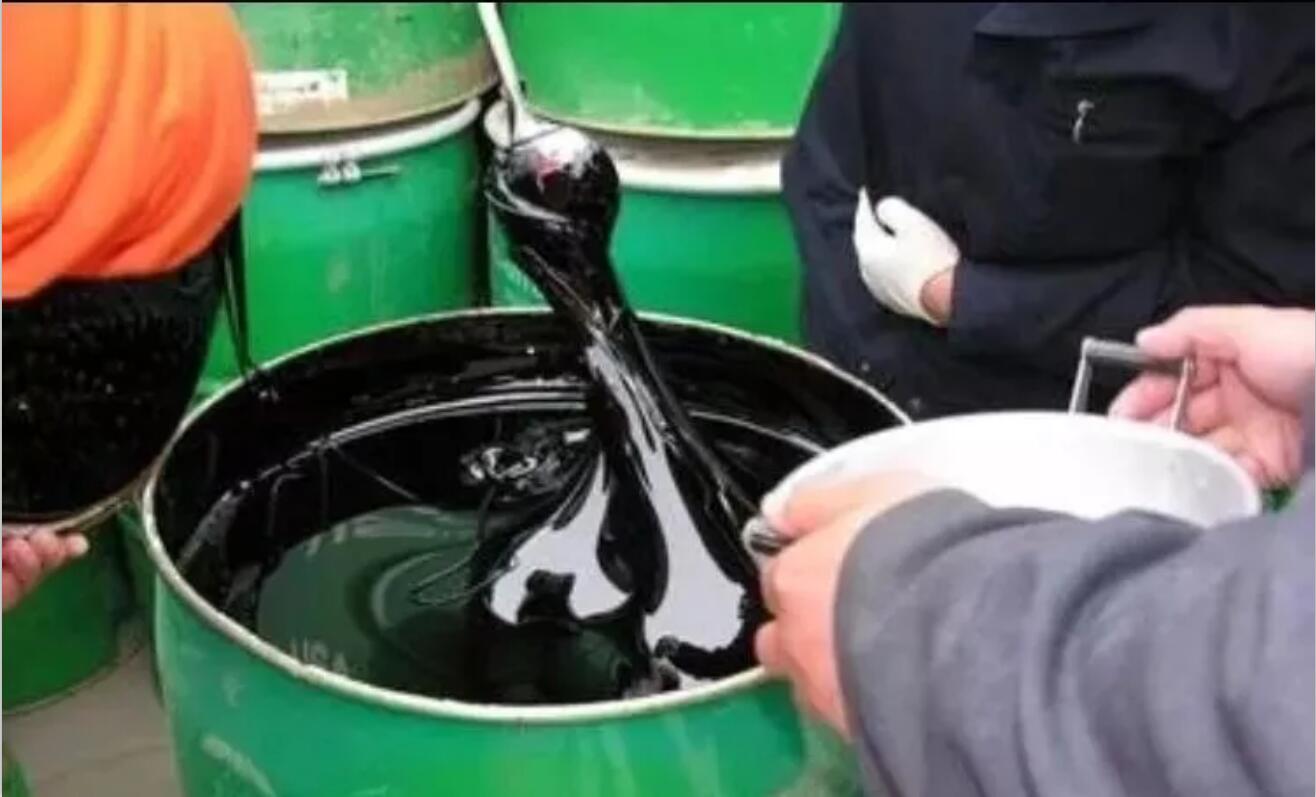*emulsified asphalt

I. Concept of emulsified asphalt
The so-called emulsified asphalt is to melt the asphalt hot and disperse it in a small droplet state in an aqueous solution containing emulsifier through mechanical action to form an oil-in-water asphalt emulsion.When the asphalt emulsion is used to build roads, it does not need heating, and can be sprayed, penetrated or mixed and spread at normal temperature, paving the surface layer and base layer of various structural pavements, and also can be used as the through-layer oil, adhesive layer oil, and maintenance of various stable base layers.
Compared with diluted asphalt and hot asphalt, emulsified asphalt does not need to consume a large amount of solvents such as gasoline and kerosene, and does not need a large amount of heat energy to heat asphalt and aggregate, thus having unique application characteristics.Emulsified asphalt uses water as a dispersion medium to form an aqueous emulsion type dispersion system. when emulsified asphalt is used for construction, it does not need heating and can flow freely at normal temperature. emulsified asphalt of various types and concentrations can be produced according to needs, and can be modified conveniently. during construction, the amount of asphalt can be easily controlled.
Main application of emulsified asphalt in road engineering
Road surface engineering
topdressing
Other
Cold mixing emulsified asphalt concrete
Cold mixing recycled asphalt concrete
Emulsified bituminous penetration pavement
Slurry seal coat
Microsurfaces
The fog sealing layer
Surface treatment of emulsified asphalt by layer paving method
Penetrating oil
Adhesive layer oil
Grassroots stability
Pit filling material
Crack filler

II. The characteristics and advantages of emulsified asphalt
( 1 )Improving road quality: the characteristics of emulsified asphalt determine that it has effects that ordinary hot asphalt cannot easily achieve. it can be used as permeable layer oil, adhesive layer oil, layer laying construction and spraying to accurately control the amount of spreading. it has good permeable effect and adhesion. the asphalt content of emulsified asphalt can be arbitrarily adjusted to 67 %, mixing is more uniform, and the film thickness of asphalt is very thin.In addition, due to the electric charge on the surface of the emulsified asphalt, the asphalt particles can be tightly adsorbed to the surface of the mineral aggregate, and the emulsifier also acts as an anti-stripping agent, which can enhance the bonding between the asphalt and the stone.
( 2 ) Expanding the use scope of asphalt: with the continuous development of emulsified asphalt technology, many hot asphalt can not be used, and emulsified asphalt can be used.
( 3 ) Energy conservation: only one heating is needed in the production of emulsified asphalt, and the temperature of asphalt only needs 120 ~ 140 ℃, although the emulsifier aqueous solution needs heating, and the emulsifying machinery consumes electric energy, etc.However, according to statistical calculations, using emulsified asphalt to build roads can save more than 50 % of heat energy than using hot asphalt.
( 4 ) Material saving: emulsified asphalt contains about 40 % water, which is equivalent to diluting asphalt to 60 % concentration with water, so the amount of asphalt can be controlled more accurately during construction.In addition, emulsified asphalt can form a very thin and uniform asphalt film on the surface of mineral aggregate, which can ensure that there is enough structural asphalt between mineral aggregates while reducing free asphalt to an appropriate level, thus significantly reducing the amount of asphalt used.On average, 15 % - 45 % of asphalt material is saved.
( 5 ) Environmental protection and safety: emulsified asphalt does not need to be heated at high temperature for a long time in the production process, and only water evaporates at normal temperature in the construction process, thus avoiding environmental pollution and scalding accidents of hot asphalt.
( 6 ) Easy to use: emulsified asphalt can be stored for a long time at normal temperature. spraying and mixing make it unnecessary to heat or heat mineral materials. construction can be carried out under the condition of damp and low temperature, which greatly facilitates production and construction.
III. Types of emulsified asphalt
The types of emulsified asphalt in our country's " technical specification for highway asphalt pavement construction" jtgf 40 - 2004 are as follows:
Emulsified asphalt varieties and scope of application
Classification
Varieties and codes
Scope of application
Cationic emulsified asphalt
PC-1
Surface area, penetration road surface and lower seal coat
PC-2
Oil through the layer and for health preservation at the grass-roots level
PC-3
Adhesive layer oil
BC-1
Slurry seal coat or cold mix asphalt mixture
Anionic emulsified asphalt
PA-1
Surface area, penetration road surface and lower seal coat
PA-2
Oil through the layer and for health preservation at the grass-roots level
PA-3
Adhesive layer oil
BA-1
Slurry seal coat or cold mix asphalt mixture
Nonionic emulsified asphalt
PN-2
Oil for permeable layer
BN-1
Used together with cement stabilized aggregate ( mix or regenerate base course )
IV. Composition of emulsified asphalt
Emulsified asphalt consists of three main substances: asphalt, water and emulsifier. in addition, it may contain other additives, such as stabilizers, special additives, modifiers, etc.

( 1 )Asphalt
Asphalt is the most important component of emulsified asphalt, which usually accounts for 50 % ~ 65 % of the total mass of emulsified asphalt.When emulsified asphalt is sprayed or mixed for use, the asphalt in which water evaporates will eventually remain on the road surface. the high and low asphalt of various inspection indexes of emulsified asphalt is a decisive factor.
Petroleum asphalt is a mixture of complex organic substances such as carbon and hydrogen. the chemical composition and colloidal structure of petroleum asphalt vary with the oil source and processing technology. the road properties, emulsification difficulty and modification methods of asphalt will all be different.Therefore, the first consideration in the production of emulsified asphalt is to choose the appropriate asphalt brand and label. besides meeting the final application requirements, it should also meet the requirements of emulsified production.Those with more aromatic and colloidal content are easy to emulsify, while those with more saturated and asphaltene content are more difficult to emulsify.In terms of colloidal structure, sol-type asphalt is easier to emulsify than gel-type asphalt.
With the appearance of modified asphalt, the phenomenon that modified asphalt is used for emulsification also appears.Since the viscosity of the modified asphalt is greatly increased and most of the modifiers are high molecular polymers, the emulsibility of the modified asphalt is greatly reduced, so it should be fully tested in the production of emulsified asphalt.
( 2 ) water
Water is the medium of asphalt dispersion. the cleanliness and hardness of water will affect emulsified asphalt.The existence of calcium and magnesium ions has advantages and disadvantages for cationic emulsifier. on the one hand, it needs to consume certain acid to neutralize, on the other hand, the neutralized product CaCl 2 exists as a stabilizer for emulsified asphalt.There are disadvantages to anionic emulsifiers. soluble calcium and magnesium ions react with anions of anionic emulsifiers to produce insoluble substances and consume emulsifiers.Impurity particles in water will also affect the emulsification of asphalt, so the water used to produce emulsified asphalt is preferably clean water with low hardness.
( 3 ) Emulsifier
The proportion of emulsifier in emulsified asphalt is very small, usually between 0.2 % and 1.8 % ( accounting for the mass of asphalt emulsion ). the effect of emulsifier makes emulsified asphalt exist in the form of stable emulsion, realizing the transformation from asphalt to asphalt emulsion.Besides emulsification, emulsifier has a great influence on the road performance of emulsified asphalt.
① Emulsifier is the main factor affecting the demulsification rate of emulsified asphalt
The different types of emulsifiers determine the essential difference of demulsification speed of emulsified asphalt.For example, the demulsification rate using lignin amine emulsifier is very slow, while the demulsification rate using fatty acid amine emulsifier will be faster.Different chemical structures of the same type of emulsifier also affect the demulsification speed.
The larger the emulsifier dosage, the more free emulsifier in emulsified asphalt, and the slower the demulsification speed.
② Influence of emulsifier on asphalt index
After emulsion breaking and water evaporation of emulsified asphalt, emulsifier and acid in emulsified asphalt remain in the asphalt.The existence of emulsifier enhances the polarity of asphalt, which is beneficial to improving the bonding between asphalt and stone. there are different increases and decreases in the penetration, softening point and ductility of asphalt, which should be analyzed in detail when used.
( 4 ) Additives
In the production of emulsified asphalt, if a small amount of chemical additives can be added, the amount of emulsifier can be reduced, the production cost can be reduced, the activity of emulsifier can be increased, and the storage stability of emulsified asphalt can be improved.According to experience, adding the following additives has different effects.
① Adding halogen inorganic salt can enhance the double electron layer effect between emulsified asphalt particles, increase the potential potential and prevent the mutual aggregation of emulsified asphalt particles.
( 2 ) The addition of water-soluble polymer can exist in the form of mesh and thread in emulsified asphalt, which can isolate emulsified asphalt particles and enhance the adhesion of emulsified asphalt at the same time.
③ Adding some nonionic surfactants can reduce the surface tension of water. at the same time, when it is mixed with emulsifier and dissolved in water, it can achieve the effect of compound emulsification and greatly enhance the emulsifying ability.
If multiple chemical additives can be selected at the same time and the proportion of their dosage can be adjusted to the optimum point, the dosage of emulsifier can be lowered to the lowest point and emulsified asphalt with good stability can be prepared at the same time.
V. Types of asphalt emulsifiers
Asphalt emulsifier can be roughly divided into synthetic emulsifier, natural product emulsifier, inorganic powder emulsifier and other types, while synthetic emulsifier is currently the most widely used type with the best performance. therefore, asphalt emulsifier generally refers to a kind of organically synthesized surfactant that can emulsify asphalt.
Asphalt emulsifier is an " amphipathic" molecule in terms of chemical structure. part of the molecule has hydrophilic properties and the other part has lipophilic properties.The lipophilic part is generally composed of hydrocarbon radicals, especially long chain alkyl groups, with little difference.There are many kinds of hydrophilic radicals, and their structures vary greatly.According to whether hydrophilic groups can ionize in water, asphalt emulsifiers can be divided into ionic and non-ionic types.Ions can be divided into anionic type, cationic type and zwitterionic type according to their electrical properties.
(sourcing: network)





